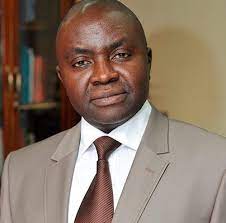The Chief Executive Officer, Centre for the Promotion of Private Enterprise (CPPE), Mr. Muda Yusuf, has given his support to the planned removal of fuel subsidy by the Federal Government from February 2022, saying the move is necessary for the nation’s economy to grow.
The Minister of Finance, Budget and National Planning, Zainab Ahmed, had last week hinted, during the launching of the World Bank Nigeria Economic Update November 2021 edition, that government would remove fuel subsidy and replace it with a monthly N5,000 transport stipend to about 40 million poor Nigerians.
Speaking Tuesday during an interview on Channels Television’s Sunrise Daily, Yusuf, a former Director-General of the Lagos State Chamber of Commerce and Industry (LCCI) rued a situation in which the Federal Government had been spending N3 trillion annually on fuel subsidies.
The CPPE’s CEO clarified: “For this economy to continue to stand, this is something that has to happen. Look at the macro-economic effects, look at the effect on our reserves, look at the effect on our foreign exchange and more importantly, look at the effect on investments.
“How can we have a sector as important as the petroleum sector and we have a policy that is practically blocking investments into that sector because that is what this thing is doing.
“We cannot continue with a situation whereby we will be spending close to N3 trillion annually on subsidies and not just because of that, because of the investment, macro-economic implication,” he said.
“We are almost feeding the entire West African sub-region with our PMS. That is not sustainable unless we want to cripple the entire economy”, the renowned economist added.
Yusuf believes that government should channel the money being spent on subsidies to primary healthcare, basic education and rural roads to improve the socio-economic wellbeing of ordinary Nigerians and by implication, reduce the poverty level in the country
Noting that the proposed government’s fiscal measure will not be easy to bear by ordinary Nigerians, the former LCCI boss listed some of the social implications as including inflationary trend and political costs for the ruling All Progressives Congress (APC) government, among other challenges.
According to him, the government has engaged the masses by proposing a minimum of N5,000 per month to about 40 million vulnerable masses as a way of mitigating the initial shocks of the fiscal measure when implemented.






